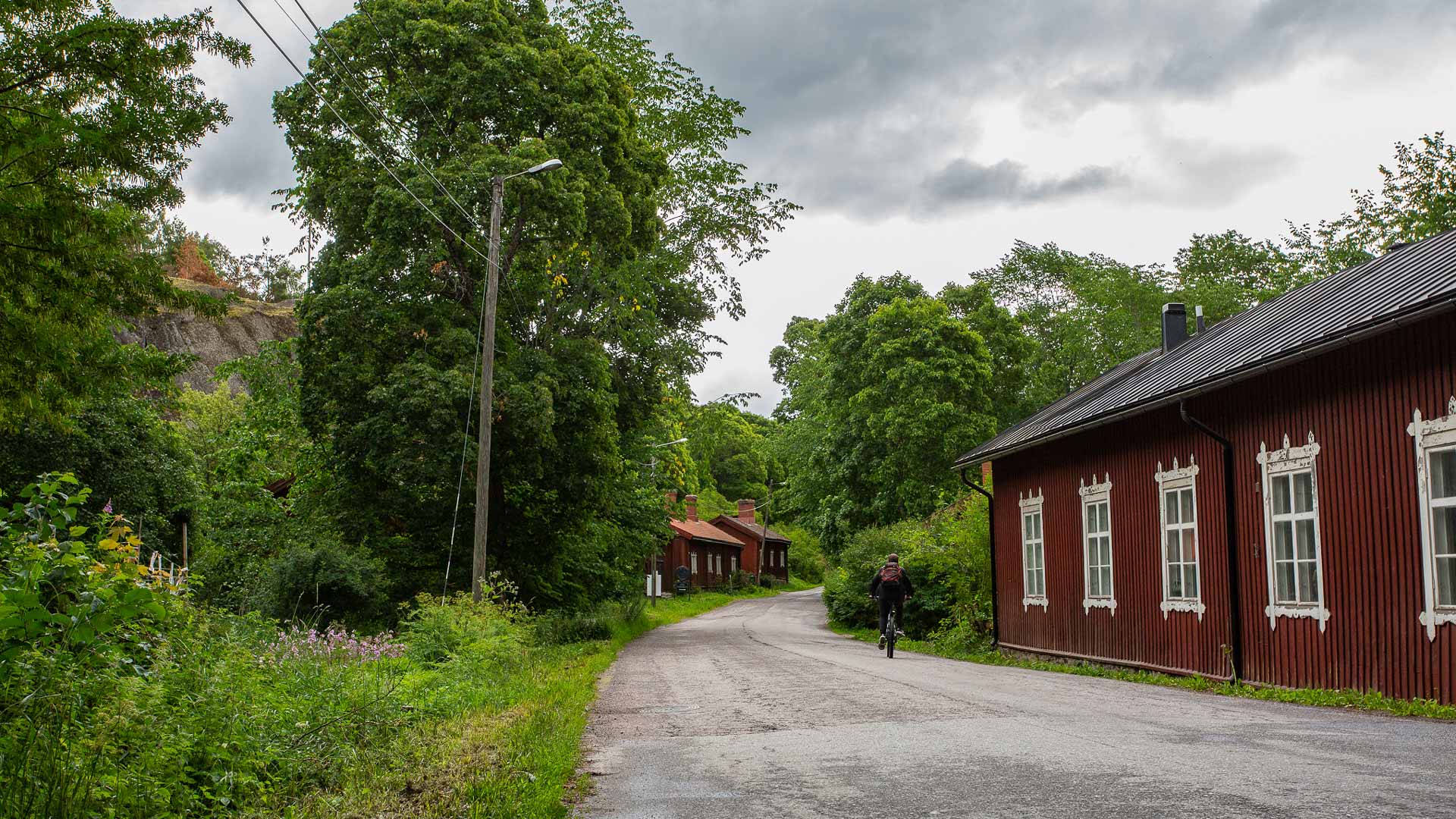Billnäs Village
The eventful history of Billnäs is almost 400 years long. The previously prosperous ironworks has taken a step back and given room for modern industry. Today it has become an idyllic village admired by tourists. The past is, however, very much present in Billnäs: the oldest residential and commercial buildings in the village are from the 1700s, and the old craftsmanship still thrives. Several entrepreneurs representing different industries serve the residents and tourists in the village.
Billnäs village offers inspirational environment for meetings, events and special celebrations. Billnäs Shop has the most conclusive selection of Ristomatti Ratia’s products. The selection includes clothes, accessories and interior design. On top of shopping opportunities, Billnäs offers accommodation in Bed & Breakfast Eden Billnäs, Billnäs Village Hotel and at the idyllic boutique hotel Billnäs Gård. Billnäs Gård offers not only accommodation but also functions as a wellness-focused private rental and retreat space.
Billnäs has an active village association that organizes events throughout the year in the village. Every year in July, the Billnäs Antique Days attract thousands of visitors from all over Finland to the charming ironworks milieu. During the Christmas season it’s worth paying a visit to Christmas in Billnäs Village -event, when program and bazaars are organized around the village.

The village has two restaurants, Billnäs Village Restaurant as well as the terrace and summer restaurant Scarlett O’Karis, that is open during summer. The restaurant’s menu is inspired by the southern states of the U.S., and it has been very popular already during its first summer in operation. The terrace is located right next to the Svartån river in the center of the historical village, so the views are spectacular.
Activities in the Village
A new recreation route called Culture Path opened in 2021 offers a wonderful outing opportunity in Billnäs. The path travels from Pumpviken in Karis to the center of Billnäs Village, and along the way there are nine information signs telling about the eventful history and cultural life of the region. The route ends at the new floating bridge crossing the Svartån river. From the bridge you can admire the village in all its beauty, and perhaps even spot some fish traveling up the new fishway in the dam!
In Billnäs you can also rent e-fatbikes and kayaks. Paddling on the beautiful Svartå river or biking through wonderful landscapes is a memorable experience. There’s also a city bike station in Billnäs, so the village works well as a resting point when for example traveling along the Railbank route.
Carl Billsten – Finland’s first ironmaster
Carl Billsten (1605-1673), originally from Stockholm, founded Billnäs ironworks in 1641 by Svartå rapid. He built a blast furnace and two trip hammers. The hammers were powered by the rapid with a drop of six metres within a short distance. Coal was made out of the trees in the nearby forest. Pig iron was produced in Billnäs until 1904.
In the 18th century, the ownership of the ironworks was transferred to the Swedish Hisinger family. The Hisingers strived to improve the conditions of the ironworkers and started a primary school in Billnäs. The primary school was among the first in Finland. In addition, a brewery was founded in the ironworks, as well as greenhouses, in which foreign plant species such as oranges and grapes were grown.
During the Hisinger era, the production of the ironworks was renewed and diversified. A factory that produced a variety of hardware tools such as shovels, hammers and axes, was established Billnäs. A traditional forge was, however, active alongside other production. In the late 19th century, a new workshop was built to the ironworks almost every year. These workshops included i.a. a cutlery mill, a sawmill and a carpentry workshop, in which the famous Billnäs office furniture were later produced.
The time of Fiskars Corporation
Having a factory owner was becoming old-fashioned, so the ironworks was turned into a limited company called Billnäs Bruks Aktiebolag. The majority of the shares remained within the Hisinger family until 1920, when they were transferred to the current Fiskars Corporation and Billnäs became its subsidiary. In 1957, Fiskars received full ownership of the factories, and in 1970 the subsidiary was entirely merged to the parent company Fiskars. At the same time, the furniture factory was closed.
Industrial activity still continues in Billnäs, where the world famous Fiskars’ orange-handled scissors are being made. In 2008, the former production facilities of the old ironworks were transferred to the ownership of Olli Muurainen.

